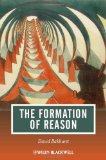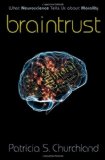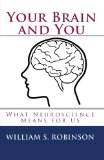May 8, 2011

The Formation of Reason by David Bakhurst (Wiley-Blackwell, 2011)
(amazon.co.uk)
Product description from the publisher:
In The Formation of Reason, philosophy professor David Bakhurst utilizes ideas from philosopher John McDowell to develop and defend a socio-historical account of the human mind.
* Provides the first detailed examination of the relevance of John McDowell’s work to the Philosophy of Education
* Draws on a wide-range of philosophical sources, including the work of ‘analytic’ philosophers Donald Davidson, Ian Hacking, Peter Strawson, David Wiggins, and Ludwig Wittgenstein
* Considers non-traditional ideas from Russian philosophy and psychology, represented by Ilyenkov and Vygotsky
* Discusses foundational philosophical ideas in a way that reveals their relevance to educational theory and practice
See also: Life in the Space of Reasons: Mood, Music, Education, and the Philosophy of John McDowell (pdf) by David Bakhurst
Comments (0)
- new books,philosophy of mind
March 9, 2011

Braintrust: What Neuroscience Tells Us about Morality by Patricia S. Churchland (Princeton University Press, 2011)
(amazon.co.uk)
Product description from the publisher:
What is morality? Where does it come from? And why do most of us heed its call most of the time? In Braintrust, neurophilosophy pioneer Patricia Churchland argues that morality originates in the biology of the brain. She describes the “neurobiological platform of bonding” that, modified by evolutionary pressures and cultural values, has led to human styles of moral behavior. The result is a provocative genealogy of morals that asks us to reevaluate the priority given to religion, absolute rules, and pure reason in accounting for the basis of morality.
Moral values, Churchland argues, are rooted in a behavior common to all mammals–the caring for offspring. The evolved structure, processes, and chemistry of the brain incline humans to strive not only for self-preservation but for the well-being of allied selves–first offspring, then mates, kin, and so on, in wider and wider “caring” circles. Separation and exclusion cause pain, and the company of loved ones causes pleasure; responding to feelings of social pain and pleasure, brains adjust their circuitry to local customs. In this way, caring is apportioned, conscience molded, and moral intuitions instilled. A key part of the story is oxytocin, an ancient body-and-brain molecule that, by decreasing the stress response, allows humans to develop the trust in one another necessary for the development of close-knit ties, social institutions, and morality.
A major new account of what really makes us moral, Braintrust challenges us to reconsider the origins of some of our most cherished values.
See also: Braintrust on Facebook
Comments (0)
- cognitive science,culture,new books,philosophy of mind
January 8, 2011

Something I haven’t experienced in awhile…
Attention Is Cognitive Unison: An Essay in Philosophical Psychology (Philosophy of Mind Series) by Christopher Mole (Oxford University Press, USA, 2011)
(kindle),
(amazon.co.uk)
Product description from the publisher:
Some psychological phenomena can be explained by identifying and describing the processes that constitute them. Others cannot be explained in that way. In Attention is Cognitive Unison Christopher Mole gives a precise account of the metaphysical difference that divides these two categories and shows that, when current psychologists attempt to explain attention, they assign it to the wrong one.
Having rejected the metaphysical approach taken by our existing theories of attention Mole then develops a new theory. According to this theory the question of whether someone is paying attention is not settled by the facts about which processes are taking place. It is settled by the facts about whether the processes that serve that person’s task– whichever processes those happen to be–are processes that operate in unison. This theory gives us a new account of the problems that have dogged debates about the psychology of attention since the middle of the twentieth century. It also gives us a new way to understand the explanatory importance of cognitive psychology’s empirical findings. The book as whole shows that metaphysical questions have a foundational role to play in the explanatory project of cognitive psychology.
This volume is of interest to anyone engaged in current debates in the philosophy of mind and perception, and in cognitive science generally.
See also: Author’s homepage
Preview via Google Books:
Comments (0)
- cognitive science,philosophy of mind,psychology
September 11, 2010

Your Brain and You: What Neuroscience Means for Us by William S. Robinson (Goshawk Books, 2010)
Product description from the publisher:
A pair of facts often gives rise to puzzles and anxieties: You depend on your brain for your thoughts, actions, and sense of self, yet you do not control its operations — in everyday life, you don’t even know what it’s doing. In this book, philosopher William S. Robinson clarifies puzzles about our mental life, addresses anxieties about selfhood and moral responsibility, and explains a set of attitudes toward ourselves that fit with both common sense and what we have learned from neuroscience.
Comments (0)
- cognitive science,consciousness,new books,philosophy of mind
September 4, 2010

The New Science of the Mind: From Extended Mind to Embodied Phenomenology (Bradford Books) by Mark Rowlands (MIT Press, 2010).
(link for amazon.co.uk)
Product description from the publisher:
There is a new way of thinking about the mind that does not locate mental processes exclusively “in the head.” Some think that this expanded conception of the mind will be the basis of a new science of the mind. In this book, leading philosopher Mark Rowlands investigates the conceptual foundations of this new science of the mind.
Traditional attempts to study the mind are based on the idea that mental processes—perceiving, remembering, thinking, reasoning—exist in brains; they are often described as “software” realized by the “hardware” of the brain. The new way of thinking about the mind has emerged from the confluence of various disciplines in cognitive science ranging from perceptual and developmental psychology to robotics. It emphasizes the ways in which mental processes are embodied (partly made up of extra-neural bodily structures and processes), embedded (designed to function in tandem with the environment), enacted (constituted in part by action), and extended (located in the environment).
The new way of thinking about the mind, Rowlands writes, is actually an old way of thinking that has taken on new form. Rowlands describes a conception of mind that had its clearest expression in phenomenology—in the work of Husserl, Heidegger, Sartre, and Merleau-Ponty. He builds on these views, clarifies and renders consistent the ideas of embodied, embedded, enacted, and extended mind, and develops a unified philosophical treatment of the novel conception of the mind that underlies the new science of the mind.
Comments (0)
- cognitive science,new books,philosophy of mind







